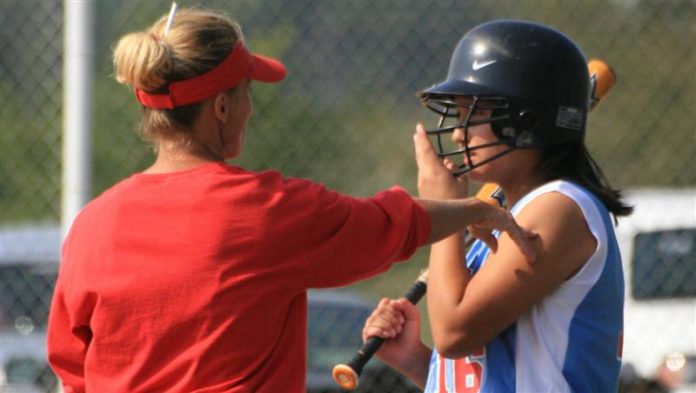Reducing Youth Sports Stress: When you as a coach hear the term ‘mental skills’, do you conjure troubling images of a white-bearded gentleman and a long couch? You wouldn’t be alone if you answered yes. But when it comes to youth sports, mental skills are actually needed – yes, required – for any athlete to perform at an optimal level. Here, take this example:
Cody is up. Bases loaded. Two outs. Last inning. Your team is down by a run. A hit will drive in two and win the game. If he gets out, it’s over. Everything is on the line…it’s up to him.
Yes, good hitting mechanics will help Cody. But when the pressure is on, things change. Negative thoughts form. Anxiety heightens. Fear kicks in. What if I mess up? What will my coach think? Are my parents watching? Everyone’s counting on me! This can cause a number of unhelpful responses in an athlete: -Breathing quickens -Nausea -Can’t think straight -Fatigue -Quickened heart beat -Tight muscles -Sweaty palms or cold hands/feet -Dizziness. The typical coach will try correcting the situation with the following statements: “Focus on the play!” “Let’s go, just relax!” “Be confident!” “Stay tough out there!”
Wouldn’t it be great if our players can genuinely become focused, relaxed, confident, and tough simply from a coach’s or parent’s exclamation? If it were that easy, all athletes would be top performers. Nobody would get nervous before or during a competition.
The truth is, a child who is having trouble relaxing before the shouting will probably have similar, if not heightened, trouble relaxing afterward. In fact, it seems silly to assume that loud verbal enforcement will miraculously create Zen-like relaxation skills in a child who has never actually learned how to relax.
Getting out of a negative, stressful state and back in control is admittedly difficult, especially after making an error or bad play. So how can you as a coach help create tough, confident, healthy players who respond effectively to setbacks and mistakes? Below are some suggestions for your players that will help strengthen their mental skills:
1. Use your thoughts—As an athlete, the biggest anxiety producer is YOU. Stress is caused by how we think and feel about life events like a big game or a big test – it’s not the event itself, but our REACTION to it that produces stress. Therefore, the better and more positive your reaction to life events, the less stress you will feel. For instance, one hockey goalie may panic after allowing a goal, causing him to lose focus and tense up on the next shot. In response to the same goal, another goalie may take a deep breath, give himself a few motivating cues and set his sights on the play in front of him (he may even take whatever frustration he’s feeling and transfer it positively into sharpened focus for the next shot). The way your players think is a choice. Encourage them to be in control of their thoughts and attitudes and maintain “positive self-talk”. When the self-talk gets unhelpful…tell them to “TAKE OUT THE TRASH!”.
2. Use your breaths—Anxiety will create tense muscles, difficulty in decision-making, and a wandering, frantic mind. Not a pleasant experience, especially when athletes are trying to play well (which, dare I speculate, is all the time). One of the simplest ways to stay in control is by taking a few deep, relaxing breaths. Whether we know it or not, our breathing typically becomes quick and shallow when stressed. A deep breath allows oxygen to more efficiently enter the blood and the brain, which in effect helps us think more clearly. Coaches can use common language with players – for example, “Take three!”; “Breathing easy!” – as reminders during games. Over time, this will become an instinctual response to tension.
3. Use your goals – It’s tempting to emphasize winning, but at the youth sports level, goals should always be focused around fun and personal growth (leadership skills, teamwork, sportsmanship, dedication, and hard work). Amid the busyness of a season, coaches tend to lose sight of what their players’ goals are (those are important too, right?). Instead of “being the best” or “winning,” they may want to simply get exercise, or be with friends, or have fun, or learn new skills. So before the start of the season, get on the same page and establish some team goals – clear, specific, challenging objectives mutually agreed upon by you and the players. Together, figure out what needs to be done to achieve them. Make a team pennant, have your players create a ‘Goal Board’ or develop a team slogan – under your direction, allow the players to have a sense of control over the team’s goals. They’ll work harder because of this.
This article was submitted by Greg Chertok, M.Ed., CC-AASP, and was originally published in Sporting Kid Magazine.











